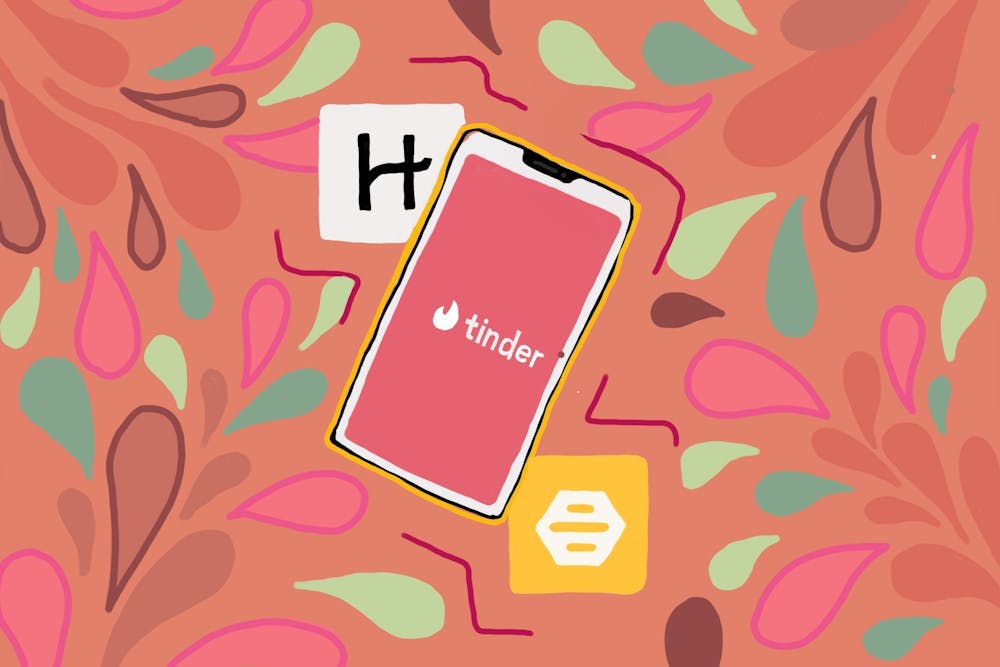Gen Z is having less sex than prior generations, but for many young people at Brown, there remains a perception that everyone is participating in “hookup culture,” or casual sexual activity.
“There’s this idea of ‘it's college,’ ” said monique jonath ’24. “Everyone is hooking up, and everyone's loving it, … or they’re in a fantastic relationship and having sex all the time.” jonath said this idea creates a looming pressure to partake in hookup culture.
“Whenever there’s something that we want, we kind of assume that everyone else has it,” they added.
The Herald spoke with several students about the unspoken pressures that hookup culture cultivates, how often they should have sex and what that sex means — socially and personally. Social norms, along with dating apps and parties, contribute to these pressures but often do not clarify what healthy intimacy and fulfilling sex can be, students say.
The Herald and the Brown Opinion Project’s fall 2022 Poll found that 25% of students were in a long-term relationship. Out of students who reported being single, just under 40% said that they are looking for a relationship, almost a quarter reported looking for something casual and the remaining two-fifths said they are not looking for anything.
David Rangel, assistant professor of education, said that people’s overestimation of how many people are actually having casual sex comes from the broad definition of a hookup. “People think that everybody is hooking up because nobody really knows what it means,” he said. Since people believe that everyone is hooking up, they feel that they should be, too, he said.
Rangel teaches EDUC 1310: “Inside Higher Ed: Sex, Class and Admissions,” which spends three weeks unpacking hookup culture on college campuses. Hookup culture affects people’s thinking, even if they are not participating in it, he explained, characterizing it as an institutional and structural pattern that shapes what people feel they have to do.
Part of the pressure from hookup culture comes from how much people talk about it, jonath said. Talking about hooking up can be linked to shame, so there is a thrill in talking about it, they explained. There’s “wanting to have (sex), and then there’s also wanting to be wanted and wanting to show other people that you’re wanted,” they added.
The BDH/BOP poll results showed that seniors were more likely to be in long-term relationships, and the class of 2026 was most likely to be single and not looking for anything.
Mason Scurry ’25 said that he felt more pressure to hook up with people as a first-year. He explained that the popular media creates an impression that people in college are always hooking up, but he feels this pressure has “mellowed out” the longer he has been at college.
Olivia Hanley ’25 agreed, adding that hookup culture for first-years can feel more prominent because it is often students’ first time away from home.
Rangel said that gender also plays a role in the way people participate in and talk about hookup culture. Women generally have more societal constraints when talking about hookups, as they are more often shamed for perceived promiscuity, he explained. He added that patriarchy is present in hookup culture because men are usually more able to govern and get enjoyment out of casual sex.
Rangel spoke further about the gender orgasm gap. “Across hookups and long-term relationships, men are more likely to have orgasms than women,” he said, “but that gap decreases as the level of the relationship increases.” He also added that women tend to talk about more relational aspects of hooking up while men emphasize the recreational aspects.
Students also discussed how dating apps and new technology play into hookup culture.
Scurry said that he used dating apps at home in Montana because it was harder to find people in his dating pool as a gay man. At Brown, he feels he does not need to use apps as much because there is a larger and more prominent gay community.
While Scurry said that he believes most people use dating apps to actually date people, Hanley said that she feels that apps are mostly used so that people can find hookups.
jonath said that they have used dating apps but that when they actually met up with someone they met on the platform, “it felt like I was trying to fabricate desire between the two of us, fabricate a history of wanting or of attraction that wasn’t actually there.”
Though they do not use dating apps frequently, jonath sometimes turns to online dating “to have a quick fix being wanted,” they said. “I feel like I stay on it, honestly, for validation every so often,” they added.
Addison Kerwin ’24 said that hookup culture prompts people to be more casual in their intimacy. But she explained how that casualness can make it harder for people to have conversations about consent or sex. She added that her motivation for hookups can be fueled sometimes by “desire for validation” rather than actually wanting to have sex with someone.
Vicky Chen ’24 said that the students here are more “free spirited,” so she assumes that people would be more casual in their hookups. Calvin Kirk ’25 noted that the nature of a hookup “depends on the person.”
“I wish it was more relationships,” said Anjali Deepak ’23, “It's incestuous at this point. Everyone's hooked up with everyone, and I think that speaks to casualness as opposed to relationships.”
The University’s Sexual Health Awareness Group aims to help students get the information they need to figure out “what their own values and beliefs about sexuality are,” said Naomi Ninneman, associate director for empowerment and prevention services at BWell.
For Ninnenman, groups like SHAG are important because students in higher education still face informational gaps when it comes to sex education. These gaps usually come from inaccurate information or stigmas that are used as fear tactics, she added.
SHAG provides students with a safe space to ask questions and learn more about intimacy, “rather than (feeling) shame for something that doesn’t need to be shameful in any way,” Ninnenman said, urging students to take a step back from hookup culture to make an independent decision about their relationships removed from external pressures. .
“Sex should be something that is pleasurable and joyful. It can be something that's healing,” Ninneman said. “Having a healthy sexuality is part of being a healthy person.”
Additional reporting by Jacob Smollen.

Elysée is a writer for metro, a producer for the Bruno Brief podcast and an aspiring card game creator. She is a second-year student studying International and Public Affairs on the Policy and Governance Track.





